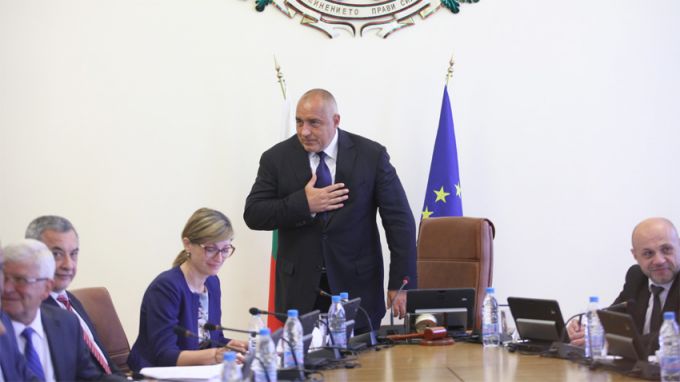
Three months after coming into office, the third cabinet of PM Boyko Borissov published its programme of governance for the period until the end of its 4-year term of office. Practically from day one of the GERB coalition with the nationalist parties, the opposition took the cabinet in its crosshairs for not having a programme of action in politics, the economy, the social sphere, defence, security etc. By the time it reached its 100 days in office, however, the cabinet approved and made public such a programme.
The 128-page document needs thorough and careful examination, yet even a cursory glance at the main chapters reveals the intentions and the steps the cabinet considers to be a priority for the country. Leaving aside the chapters dedicated to relations with the EU and the world, the environment, defence and security, culture and health, education and justice, which merit individual analysis, we can safely say that the governance programme focuses on measures and tasks in the social sphere and in the economy, which take up 8 of the 21 chapters, and on which work is being done “every day” as PM Borissov insists. Financial stability, zero budget deficit and a stable and sustainable economic growth, coupled with an improvement of the financial situation of the population, runs like a red thread throughout the document and underlies the steps planned. This is nothing new, it is a policy pursued with varying degrees of success by all three Borissov cabinets.
A certain amount of curiosity now is evoked by the attention given to the capital market and the embryonic state it is in – a fact that is slowing down economic development. One more element that is new is the series of measures for reducing the administrative burden and red tape on businesses, which the government says it plans to restrict by having public administrations offer an increasing number of e-services. It should also be noted that some efforts are being made towards deregulation, also in the interest of businesses. There are other efforts with the same goal in mind – to make life easier and stimulate small and medium-sized businesses, such as the predominant number of 100 percent Bulgarian companies. Transferring the state-owned Bulgarian Development Bank from the finance ministry to the ministry of the economy is indicative in this respect, as the idea is that it should be working precisely for micro, small and family businesses. The current dramatic drop in foreign direct investments is also in the focus of attention of the cabinet. It will endeavour to reverse this trend by way of preferences, economic zones and by improving the competitiveness of companies in Bulgaria, whether foreign or national, no matter. This will boost export and domestic consumption, which are expected to be key drivers of economic growth by over 3 percent by 2021.
Power generation has a separate section of the governance programme, all to itself. And with good reason, as at this time this is a sector where very important developments are unfolding, and in which the prime minister himself has big plans and ambitions - first and foremost with regard to natural gas which should gradually replace coal at thermo-electric power plants and bring down pollution. Not without pressure from Brussels, of course. Moreover, the need to diversify gas supply is ever more pressing, as is reducing dependence solely on Russia and making Bulgaria a gas hub for Southeastern Europe. Another problem the document focuses on is nuclear power generation, with attention devoted even to the project of a second nuclear power plant in Belene on the Danube, a project shelved by parliament. Tourism is also given its own section and this is evidently due to the fact that it accounts for around 15 percent of the country’s GDP. The main point made here is to assert Bulgaria as a year-round destination for a higher class of tourists and to rebrand the country as a tourist destination with a remarkable cultural and historical heritage.
Ultimately, the idea of all of these steps and intentions is to make Bulgarians richer, healthier and more educated by 20121. Or to be more specific – to raise the minimum monthly salary to 330 euro and the average monthly salary to 760 euro. Nothing much to speak of, yet with these figures now standing at 236 and 520 euro respectively, it is a goal that may well be worth keeping our fingers crossed for.
English version: Milena Daynova
Bulgaria’s Parliament failed to hold a session on October 15. "The next session is tomorrow at 9 a.m.", announced National Assembly Speaker Natalia Kiselova. Only 61 MPs registered for attendance during the first and only attempt to open the..
Yet another disaster, yet another series of analyses and post-hoc actions by the relevant institutions. The devastating flood that hit the resort village of Elenite a week ago, claiming four lives, has led the state to realise that the flooded..
“ The result of the changes in the services is the crushing of inconvenient opponents, ever more aggressive political repression, and the ever more brazen plunder of public resources and private business – about which we will be learning less and less,”..

+359 2 9336 661
